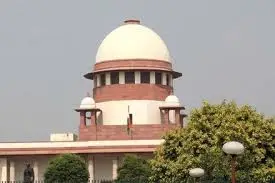Due procedure not followed for revocation of security clearance: Turkish firm Celebi to Delhi High Court

New Delhi, May 2025 – A high-stakes legal showdown is underway between the Indian government and Turkish aviation firm Çelebi Airport Services India Pvt Ltd. The company alleges that its security clearance was revoked without notice, violating core legal procedures and business rights.
About Çelebi Aviation
Çelebi is a Turkish multinational specializing in ground handling and cargo services. Since 2006, it has operated in India across several major airports, including Delhi and Mumbai. Over time, the firm built a strong presence and currently employs over 10,000 staff, most of whom are Indian nationals.
Its role in ground handling—covering baggage, cargo logistics, and aircraft support—has made it a vital part of India’s airport ecosystem. Consequently, any disruption in its services could significantly affect airport operations.
What Triggered the Dispute?
Recently, the Bureau of Civil Aviation Security (BCAS) abruptly revoked Çelebi’s security clearance. Authorities cited unspecified national security concerns but did not provide a formal notice or chance for the company to respond.
In response, Çelebi approached the Delhi High Court, arguing that this decision lacked transparency and fairness. According to the company, the government’s action disregarded fundamental principles of natural justice.
Legal Concerns: Was Due Process Ignored?
Çelebi’s case rests heavily on Rule 12 of the Indian Aircraft (Security) Rules, 2023. This rule requires that authorities must issue a show-cause notice and allow a hearing before revoking any company’s security clearance.
Senior Advocate Mukul Rohatgi, representing Çelebi, stated that the government failed to follow this rule. More importantly, the Ministry of Civil Aviation submitted its reasoning in a sealed cover, which Rohatgi strongly opposed.
“There’s no notice, no hearing, and we don’t even know the reasons. How can one defend themselves under these conditions?” Rohatgi asked the court.
Furthermore, the legal team highlighted that this approach contradicts the very foundation of Indian administrative law, where every accused party must be heard.
Government’s Stand: National Security Above All
On the other side, Solicitor General Tushar Mehta defended the decision. He argued that the revocation was based on classified intelligence. Disclosing such information, he warned, could pose a threat to national security.
“Some matters are too sensitive to put on record. National interest must prevail,” Mehta told the court.
Additionally, the government requested that the court not interfere with decisions based on intelligence inputs. It maintained that such actions fall within the executive’s exclusive domain.
This position, however, sparked a broader debate about transparency in governance. Several legal experts have raised concerns over the increasing use of sealed cover jurisprudence, which limits accountability.
Impact on Operations and Workers
The immediate fallout of the revocation could be severe. Çelebi claims that nearly 3,800 Indian workers are directly affected by this decision. Since the company provides services at multiple airports, disruptions could ripple across the country’s aviation network.
Moreover, the firm fears that foreign investors might begin to lose trust in India’s regulatory environment. “We’ve complied with every local law. Yet, one sudden order can put thousands of jobs and operations at risk,” a Çelebi official stated.
Similarly, an executive from a leading Indian airline remarked, “Airports depend on reliable service providers. If partners feel insecure, operations and passenger services will suffer.”
Geopolitical Implications
Beyond business, the case carries diplomatic weight. Turkey is watching the matter closely. While Ankara has not made any official statement, insiders suggest that it may raise the issue in future bilateral discussions.
The case also comes at a time when India is looking to deepen international business ties. A perception of regulatory unpredictability could hurt those efforts.
The Road Ahead
Justice Sachin Datta is presiding over the case in the Delhi High Court. The next hearing is scheduled for May 22, 2025. Legal observers believe the court could offer interim relief to Çelebi if procedural lapses are proven.
If the court rules in Çelebi’s favor, the decision could reshape how Indian authorities balance security interests with legal rights. It may also push courts to reconsider the widespread use of sealed documents in administrative matters.
Conclusion
The Çelebi Aviation case is more than just a corporate dispute. It touches on important themes like fairness, due process, national security, and investor confidence. While the government must protect national interests, it must also uphold transparency and procedural justice.
The coming verdict could set a crucial precedent—one that defines how India handles sensitive matters without compromising the rule of law.






